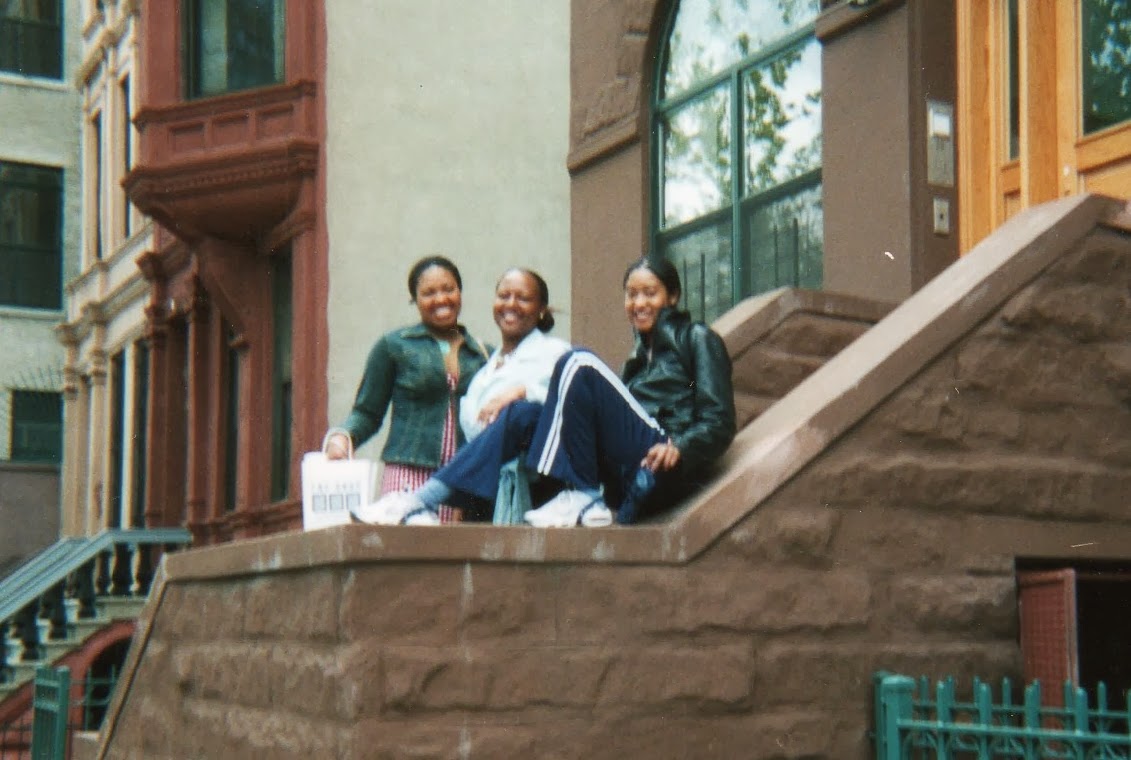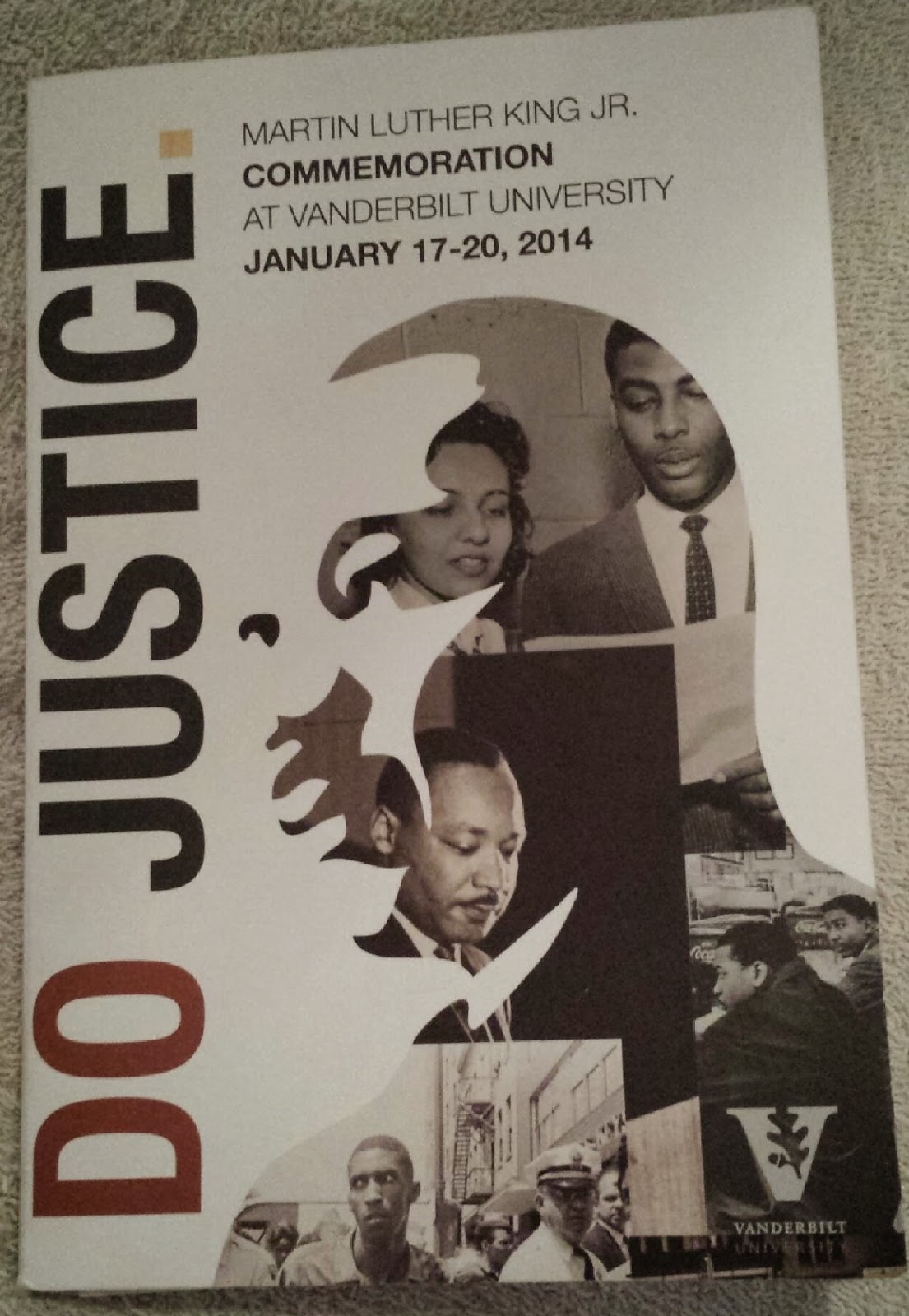 |
| 80s Party |
I’ve
had some of my best good times in a denim jacket that I got from JC Penny’s
Bisou Bisou line when I was in college.
That jacket has been through thick and thin with me. It has weathered many storms as well. I remember I was wearing the jacket when my
friends and I went to my first 80s party back when 70s parties were just
beginning to go out of style. I remember
having that jacket on during one of my first trips to New York and being atop
the Empire State Building. It kept me warm on that windy day!
 |
| Harlem Stoop |
When
the jacket started to become more than worn and started to take on holes, I
still kept wearing it because I found it so hard to let go. I laugh because I was wearing it once when I
went out to dinner with some girlfriends from grad school and someone at the
table noticed that there was more than one hole in it. One of the holes, I didn’t know was
there. I saw her expression as if she were
wondering if I was broke. Though grad
school (and undergrad) can do that to you, I could actually afford to get a new
jacket but I just wasn’t ready to replace my favorite denim jacket. Good denim is so hard to find!
 |
| Phoenix Conference |
Imagine
my astonishment when I discovered Ralph Lauren’s new Denim and Supply line that was just
released a few months back. This line is
Ralph Lauren’s take on the rugged outdoorsy and a lot of the pieces that are
marketed as men’s can actually be unisex.
There are some great sweaters
that can be paired with t-shirts
I’ve adored that were both men’s. I actually worked as a seasonal employee at
the Ralph Lauren Outlet store during the Christmas holiday and we would tell
people who came into the store and asked, “Is this the men’s department or
women’s?” that it was both. Even though
both men’s and women’s clothes are sold in that department, almost every time a
woman would walk over to the men’s attire and pick something up in
admiration.
 |
| Denim & Supply |
So
when I went shopping for a new denim jacket, I did the very same thing. I shopped Ralph Lauren’s Denim and Supply
line. My new denim jacket that I love
just as much as the old one, came right out of the men’s department. It came with the “lived-in” feel that I loved
so much about my old jacket. Parts of
the jacket fabric are shredded just enough to make you think it’s been around
but not so much that it needs stitching to keep the “damage” from growing. The weave is tight yet relaxed and it even
has the vintage look—yellowing of the fabric around the areas that touch the
skin. I love this jacket and originally
bought it for one outfit—something I never do—but I’ve found myself pairing it
with other outfits such as the one in the photo to the left. In this photo, I paired my new favorite
jacket with some orange corduroys that I also picked up from the Ralph Lauren
Outlet store. The sweater is from
H&M and the jewelry (if you can see it) is a Betsey Johnson necklace and
rings and Banana Republic bangles. My handbag
is from Cole Haan. It’s a new favorite
as well. I didn’t realize how versatile
it was when I bought it. Those boots are
Etienne Aigner that I’ve had in my closet for about five years. I just got the heels fixed.
I
would recommend Denim and Supply to anyone who values quality a little more
than labels. These clothes don’t carry
the Polo Pony for which Ralph Lauren is so famous. They are, however, very sturdy. I bought a couple t-shirts that I live in on the weekends. I originally bought them as a birthday gift
for a guy friend but didn’t want to give them up after I tried them on. They are so comfortable. Some of the women’s attire is not my style
but they do have both casual items and items that are a little dressier. During the Christmas holiday season, they had
a black velour blazer with satin lapels that I admired more than once. I had to keep telling myself, “You already
have a jacket like this” to keep from buying it. Denim and Supply replaces Ralph Lauren’s
Rugby line and though I hated to see it go, I welcome Denim and Supply with
open arms.



